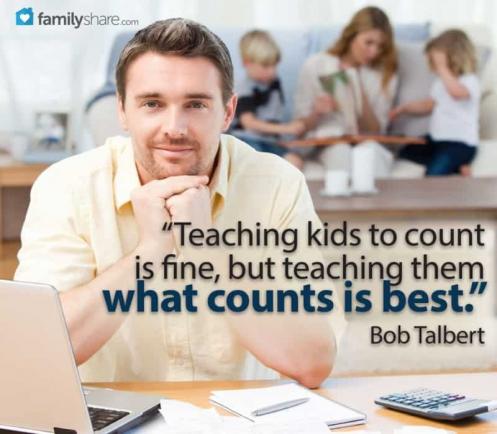
When out shopping, do your children beg you to buy them a toy or treat? There is an easy solution to this common problem. Teach your little consumers some basic economic principles. Soon begging will cease and smarter spending and saving will begin.
Your first financial discussion should be about where money comes from and what it is used for. I remember when my son was three, he asked me to buy him a small toy. When I told him I didn't have the money to purchase it, he said "Then just write a check!" Explain about cash, checks, debit cards, credit cards, and accounts to your children in a way that they will understand. I suggest getting out examples of each to look at and compare. Include children as young as 4 in this first basic discussion. They will learn and retain some of the information, and they will know that keeping track of money is important to you.
Next, discuss what a budget is. My husband did this with our children in a fun and engaging way. He listed items in our family's budget (including mortgage, insurance, utilities, food, clothing, vacations and car) and gave the kids each $4,000 in play money. The money represented their monthly salary. After immediately removing some for taxes and church donations, the kids assigned the rest of the money to the categories in their budget. After all the "needs" categories were taken care of, they were surprised how little was left to cover the wants. The tangible money made a lasting impression.
As children become more interested in spending money, provide opportunities for them to earn it. My children earn an allowance monthly, with the option to do extra chores for extra cash. Now when we are at a store or on an outing and they want something extra, they have their own money to spend. My older daughter saved enough to buy her own tablet device, and the children all had enough to buy small Christmas gifts for their family members.
Older teenagers and young adults can benefit from following a budget. You may want to increase a teenager's allowance to cover all clothing purchases. They could contribute money from babysitting or a part-time job to pay for gas or car insurance when they can drive. Sending a young adult off to school with knowledge of the cost of higher education is recommended. They should have a budget for each term or semester, including items like room and board, books, transportation, clothing and recreation.
After your children get the hang of earning, spending, and saving money, consider letting them help with the household budget. Set a budget for a family vacation, and then compare hotel or airfare costs. Decide what activities you will do on the trip and price them out. Kids will have to compromise to stay within the budget, and they will realize how quickly money can be spent. This method could also be used for a weekly grocery shopping trip or for back-to-school shopping. Children will take better care of their things if they understand their value.
Financial freedom is a great blessing in life. The first step to achieving it is knowledge. Most people don't have endless financial resources, so budgeting is key to saving more than you spend. Teach your children about budgeting from an early age and set them on the path to financial success.

